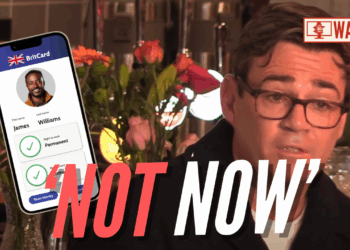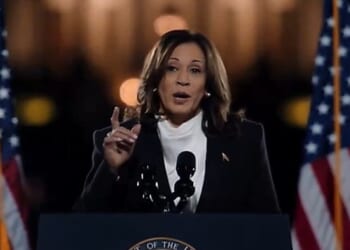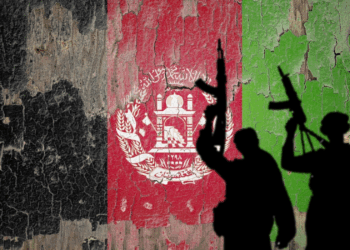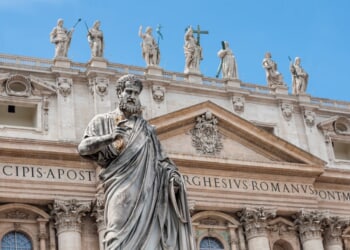Dame Caroline Dinenage is Chair of the Culture, Media and Sport Committee and MP for Gosport.
While it saddens me, it was right that the BBC’s Tim Davie and Deborah Turness accepted responsibility and resigned.
Leadership must be accountable when an institution as important as the BBC finds itself mired in scandal and accused of breaching its most basic principles. But let’s be honest: this isn’t a crisis that can be resolved with two high-profile departures and a carefully worded apology. The problem runs deeper. It runs into the very culture, editorial mindset and assumptions that have shaped the BBC for years.
The Prescott report made plain what many viewers have sensed for some time: a pattern of institutional bias within BBC News and Current Affairs. From the selective editing of President Trump’s speech to the persistent slant in its coverage of the Gaza conflict, the deep anti-Israel bias, the BBC’s journalism has too often crossed the line between analysis and advocacy. These are not isolated misjudgements.
The issue extends well beyond a single documentary or the errant push notification that misrepresented key details of an unfolding event. It reaches into the BBC Arabic service, whose coverage of the Middle East has drawn repeated issues. It touches upon the corporation’s uneven approach to certain, where a small but powerful group of ideologically driven editors appear to wield disproportionate influence. And it affects the BBC’s American and international output, which often reflects the assumptions of an insular cultural elite rather than the broad spectrum of opinion across its global audience.
The uncomfortable truth is that too many within the BBC no longer recognise bias even when it’s staring them in the face. This is what makes the current crisis so dangerous. When a broadcaster becomes so certain of its moral rectitude that it can’t see how its coverage tilts, it ceases to be self-correcting. That is the very definition of institutional bias. The idea that it was once seen as the most trusted global news band with gold standard journalism has been eroded.
In recent years, the BBC has spent enormous energy pursuing diversity of gender, ethnicity and sexuality. Those efforts are legitimate and, in many respects, overdue. But diversity of thought has been conspicuously absent. The result is an organisation that looks outwardly inclusive yet inwardly uniform. It is a newsroom where ideological conformity is often mistaken for moral clarity, and where dissenting voices within are quietly sidelined.
The team responsible for producing the Panorama documentary at the centre of the latest controversy must take a long, hard look at themselves. But so too must those further up the chain who commissioned, edited and approved its release. Accountability cannot stop at the studio door. For too long, BBC management has relied on the convenient fiction that failures of impartiality are isolated mistakes rather than indicators of a deeper malaise. That excuse no longer washes.
The new Director-General will inherit not merely a damaged brand but a crisis of trust.
If Britain’s national broadcaster cannot uphold its charter obligations or abide by its own editorial standards, it risks losing the very thing that justifies its status – public confidence. The licence fee depends on the assumption that the BBC serves everyone, not just those who share a particular worldview. That social contract is breaking down.
The Government, for its part, must tread carefully but firmly.
Politicians should not dictate editorial lines; that way lies state media, not public service broadcasting. But ministers do have a duty to ensure that the BBC lives up to the commitments set out in its charter, chief among them, the duty of impartiality. The forthcoming review of the BBC’s funding and governance must grapple with these structural issues, not merely the financial ones.
Real reform will mean more than rewriting editorial guidelines. It will require a cultural reset. The BBC must rebuild mechanisms that promote genuine pluralism of thought. Recruiting journalists from a wider range of backgrounds, not just demographically, but intellectually, enforcing rigorous editorial challenge at every level and creating a well-rounded internal culture.
Transparency is key. The BBC should publish the findings of all internal reviews into editorial failings and be open about how it plans to address them. Audiences no longer accept vague assurances of lessons learned. They want evidence that the organisation understands where it went wrong and is taking concrete steps to put it right.
There are thousands of BBC journalists and producers who still believe passionately in the mission of public service broadcasting. They deserve leadership that will restore pride in that mission.
The resignations of Davie and Turness may mark the end of one chapter, but they will mean little unless the next leadership team confronts the underlying problems head-on. The BBC’s future depends on it. If the corporation cannot demonstrate genuine impartiality, on the Middle East, on domestic politics, on questions of sex and gender, it will forfeit not just its reputation, but the authority that makes it worth funding at all.
Britain needs a BBC that belongs to everyone again.
That will take humility, courage and a willingness to confront uncomfortable truths. Failure to see it through this crisis will not only be a disaster for the BBC but for the UK and our reputation across an increasingly polarised and unstable world. The license fee payer deserves better.

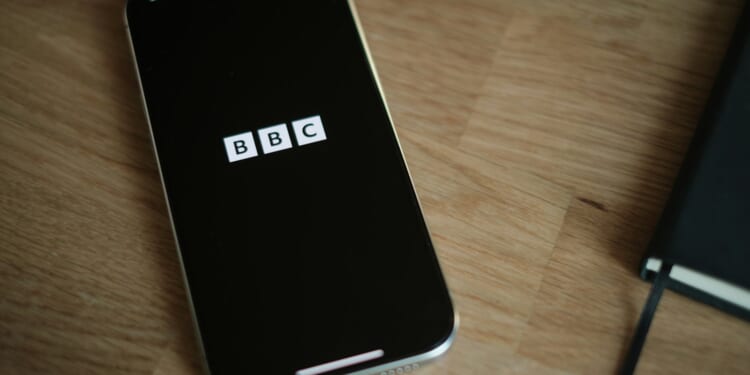
![Scott Bessent Explains The Big Picture Everyone is Missing During the Shutdown [WATCH]](https://www.right2024.com/wp-content/uploads/2025/11/Scott-Bessent-Explains-The-Big-Picture-Everyone-is-Missing-During-350x250.jpg)




